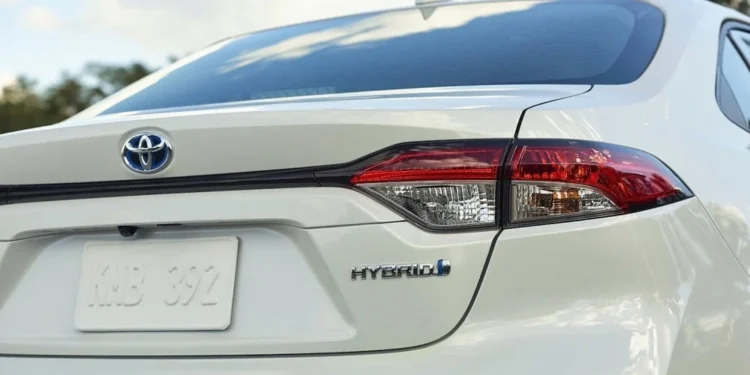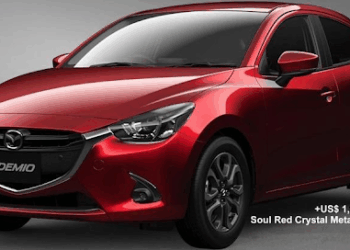In 2025, Kenya is experiencing a notable shift on its roads — the rapid rise of hybrid vehicles. With petrol prices soaring and environmental awareness on the rise, many drivers are moving away from conventional fuel-powered cars in favor of hybrid alternatives.
From the economical Toyota Aqua to the premium Lexus RX 450h, hybrids have quickly become a smart choice for Kenyans looking to reduce fuel costs while embracing eco-friendly technology. But what’s fueling this shift? And what role is the government playing to support it? Let’s break it down.
1. Fuel Prices and Daily Cost Savings
Kenya’s average petrol price has remained above Ksh 200 per litre in 2025. For daily drivers, this has turned fueling up into a financial burden. Hybrid cars — which combine a fuel engine with an electric motor — offer a solution by consuming significantly less petrol.
Take the Toyota Prius, for instance. A regular petrol sedan averages around 12 km/l, while the Prius boasts 22–25 km/l. This can translate to over Ksh 10,000 in monthly fuel savings for Nairobi-based commuters or ride-hailing drivers.
Hybrid cars have become a practical solution to combat rising living costs without compromising mobility.
2. Cleaner Air in Congested Cities
Cities like Nairobi, Mombasa, and Kisumu face increasing air pollution due to dense traffic and limited green space. Hybrid vehicles emit less carbon dioxide and help reduce pollution levels, especially during frequent city traffic jams where their electric motor takes over during idle times.
Noise pollution also drops, thanks to quieter hybrid engines. As awareness grows, many Kenyan motorists are seeing hybrids not just as fuel savers — but as part of the solution to urban pollution challenges.
Explore more green driving tips and insights on Automag Kenya, your go-to source for Kenya’s latest automotive trends.
3. Supportive Government Policies
While Kenya has not yet rolled out full tax exemptions for hybrid vehicles, there are encouraging signs of support:
- KEBS (Kenya Bureau of Standards) now favors low-emission vehicles during inspection.
- Import duties on hybrid models can be slightly lower depending on the importer’s knowledge and documentation.
- Long-term policy trends from the Ministry of Energy and Transport favor cleaner mobility, with electric and hybrid vehicle incentives being discussed for the future.
Even without direct subsidies, the regulatory environment is slowly shifting in favor of low-emission vehicles — making hybrids a smart long-term choice.
4. Budget-Friendly Hybrid Options
A few years ago, hybrid cars were mostly considered luxury items. But in 2025, the market has evolved. Today, a wide range of hybrid vehicles are available to fit various budgets:
- Toyota Aqua – From Ksh 1.8M
- Honda Fit Hybrid – From Ksh 1.4M
- Nissan Note e-Power – From Ksh 2.1M
- Toyota Harrier Hybrid – From Ksh 4.5M
- Lexus RX450h – From Ksh 6.5M
Platforms like Auto24 Kenya list many of these models at competitive prices. For example, you can find pre-owned Toyota Aqua and Honda Fit Hybrid listings well below the Ksh 2M mark — perfect for first-time hybrid buyers.
5. Better Servicing and Spare Parts Access
In the past, one of the main concerns with hybrid vehicles was where to service them. Today, that issue is quickly fading.
More garages across Kenya — particularly in Nairobi — now offer hybrid servicing. Facilities like JVSC (Japanese Vehicle Service Centre) provide battery diagnostics, hybrid-specific repairs, and spare part sourcing. Buyers also benefit from importers offering battery warranties, like the 1+1 year hybrid battery coverage on selected imports from Cars Kenya.
This growing infrastructure is making hybrid car ownership easier and more worry-free than ever before.
6. Stronger Resale Value and Market Demand
As more Kenyans prioritize fuel economy, hybrid cars are fetching better prices in the resale market. Models like the Toyota Prius, Harrier Hybrid, and Aqua now enjoy strong demand among used car buyers.
If you plan to upgrade within 3 to 5 years, a hybrid could give you a better return than a traditional petrol car — thanks to this shift in buyer preferences.
7. Ideal for Kenyan Roads and Conditions
Hybrid vehicles aren’t just city cruisers. Many models are well-suited for the diverse driving conditions across Kenya:
- Regenerative braking handles Nairobi’s stop-and-go traffic efficiently.
- Electric-assist driving reduces engine stress on rough terrain.
- Hybrid SUVs like the Subaru XV e-Boxer and Toyota Harrier Hybrid offer AWD for off-road trips and rural roads.
Whether you’re navigating downtown Nairobi or driving upcountry, hybrids offer versatility with performance and fuel economy.
8. Appealing to Tech-Savvy Drivers
Kenya’s younger generation — especially urban professionals and returnees from the diaspora — are embracing hybrid vehicles not just for savings, but for their tech features:
- Touchscreen infotainment
- Push-start ignition
- Fuel consumption analytics
- Multiple driving modes
These smart features align with the lifestyles of digitally connected Kenyans, making hybrids a preferred choice for the new generation of car buyers.
Conclusion: Kenya’s Hybrid Future Looks Bright
Hybrid cars are no longer out of reach for everyday Kenyans. With lower fuel consumption, reduced emissions, improving service options, and favorable import policies, hybrids represent a practical and eco-conscious choice.
As government policies evolve and infrastructure expands, expect hybrid adoption to keep rising — turning this trend into a long-term transformation on Kenyan roads.
Ready to Go Hybrid?
To explore second-hand hybrid cars like the Toyota Aqua, Prius, or Harrier, visit https://auto24.co.ke/ for some of the best deals in the country. Whether you’re a first-time buyer or looking to upgrade, there’s a hybrid vehicle waiting for you.
For more insights on Kenya’s growing hybrid and electric car scene, check out Automag Kenya — your trusted source for the latest car reviews, road trip guides, and vehicle care tips tailored for Kenyan drivers.




